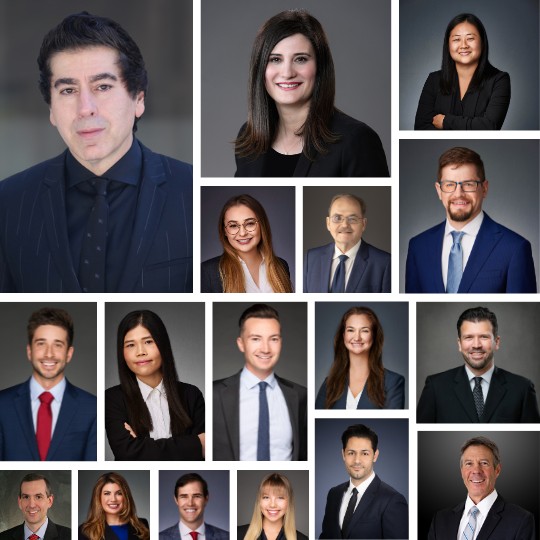Every business owner needs an exit plan, yet many lack understanding about what exit planning entails. If you are considering exiting your business, this guide will walk you through the critical components of exit strategies and why having a robust exit plan is crucial.
If you own a business, most of your net worth is probably tied to it. You’ve spent years investing your heart, soul, and finances into your company. But what happens when you decide to exit? How will you unlock the value you’ve worked so hard to build?
An exit plan helps answer these questions and is an indispensable part of achieving financial freedom and securing your legacy. An effective exit plan doesn’t just look at the present; it considers the future. With the right exit strategies, you can ensure your business continues to thrive even after you’ve exited, making it more appealing to potential buyers.
Table of Contents
Start Exit Planning Now! Why Timing Matters
Starting early allows you to undertake a detailed analysis of your business, assessing its current state and projecting future trends. This gives you the opportunity to implement the necessary exit strategies to align with your long-term goals and maximize your return.
Exit planning involves complex financial considerations, including potential tax liabilities. An early start allows for careful tax planning, utilizing strategies to minimize tax burdens in conjunction with your exit. Collaborating with our business wealth management can guide you in optimizing the tax aspects of your exit strategies.
Unlocking the Value of Your Business
- Understanding Your Business’s Worth: To maximize value, you need to understand what your business is worth. This means getting a professional valuation and identifying key value drivers that can be enhanced.
- Enhancing Desirability: Buyers want a business that can run without the owner. Consider how to make the company more efficient, invest in key team members, and create systems that make the transition smoother.
- Choosing the Right Time to Sell: Market conditions, industry trends, and economic factors can affect the value of your business. Timing your exit to coincide with favorable conditions can lead to a higher selling price.
- Negotiating with Skill: Don’t settle for dimes on the dollar. Skillful negotiation involves understanding what your business is worth and not accepting less. It may be beneficial to seek professional guidance in this complex process, and we’re here to provide the expertise and support you need to navigate a successful exit.
Succession Planning in Your Exit Plan
If your exit plan involves a leadership transition within the company or family, early planning is essential for identifying and training suitable successors. It involves training, mentoring, and developing these individuals to ensure they are ready to step into leadership roles. Within exit planning, this helps create a smooth transition and ensures the business continues to thrive.
A robust succession plan minimizes the risks associated with a sudden departure, such as a lack of leadership or strategic direction. By having potential successors ready, the exit plan is more resilient to unexpected changes, providing a more stable and controlled transition process.
Succession planning helps preserve the corporate culture by ensuring that future leaders understand and embody the company’s values and vision. Within exit planning, this helps ensure that the business maintains its identity and continues to operate in alignment with its original mission.
6 Essential Components of an Exit Plan
- Tax Efficiency: Strategically reduce tax liabilities during the exit to optimize the transformation of business ownership into personal wealth, preserving more of the value.
- Legal and Asset Protection: Incorporate legal strategies that protect both the business owner and the company from potential legal disputes or liabilities.
- Wealth Planning: Include a tailored financial plan that aligns investments, retirement planning, and other financial aspects with post-exit goals.
- Operational Continuity: Maintain operational integrity, minimizing disruptions during the transition period.
- Family Considerations: To align the exit plan with family goals and maintain harmony among family members, particularly if the business is family-owned.
- Emotional Well-Being: To address personal feelings, values, and concerns leaving the business, and having a plan to help achieve post-exit life aspirations.
Financial Security Post-Exit
The goal of any exit plan is to secure your financial future. But how do you achieve that?
- Investing the Proceeds Wisely: After selling, how will you invest the proceeds to ensure ongoing financial security? This requires business wealth management, where our team of seasoned professionals can implement integrated financial strategies that bridges your business and personal wealth.
- Planning for Taxes and Other Expenses: Exit strategies must account for the costs of selling a business, including taxes. Business wealth management can minimize your tax burden and other burdens by creating a custom crafted plan designed to have long-lasting impact for you and your family.
- Setting Clear Goals: What do you want from your exit? Whether it’s retirement, a new venture, or something else entirely, your exit strategies must align with your goals.
A Team That Works For You
You have a single opportunity to exit successfully, and there are no second chances if things go awry. Don’t leave anything to chance. Opt for the right approach. Collaborate with a team of experienced professionals to meticulously design and implement a personalized exit strategy for your business.
It might be alluring for business owners to manage their exit planning on their own and maintain control. However, by managing your own planning, you inadvertently give the buyer a notable upper hand (and control) over the deal.
Having Confidence Wealth Management on your side can provide numerous benefits, such as:
- Help increase your business valuation: We will help present your business in the best light to potential buyers, helping to secure the best possible price.
- Tax planning: We will utilize tax-efficient strategies to minimize your tax burden from the sale of your business, as well as ensure that you are in compliance with all tax laws and regulations.
- Navigate the sales process: The process of selling a business can be complex and time-consuming. We can help streamline the process, negotiating with potential buyers and managing the financial aspects of the sale.
- Expertise and market knowledge: With our deep understanding of the market and the latest trends in business sales, we will provide valuable insights and guidance to help you achieve your desired outcome.
- Network of buyers and investors: With our network of buyers and investors, we can help you reach the right people. This can save time and increase the chances of a successful sale.
- Managing the emotional aspects of the sale: Selling a business can be an emotional journey, and we will provide support and guidance to help you navigate the ups and downs of the process.
Conclusion: Navigating Exit Strategies
The importance of exit strategies is often overlooked by business owners. Having a comprehensive exit plan is essential for anyone ready to hand over the responsibilities of running a company. It’s about more than just leaving; it’s about ensuring that you create financial freedom for yourself and establish a lasting legacy.
Remember, when it comes to exit strategies, planning ahead, maximizing value, and consulting with an experienced team like Confidence Wealth Management could make the difference between a successful exit and a missed opportunity.
Are you interested in learning more about exit strategies and developing an exit plan tailored to your specific goals?
Let our experienced professionals guide you through the process.
Your Custom Exit Plan Awaits
Personalized exit strategies exclusively for business owners and established entrepreneurs










